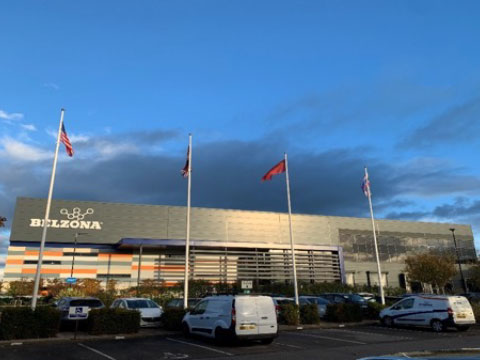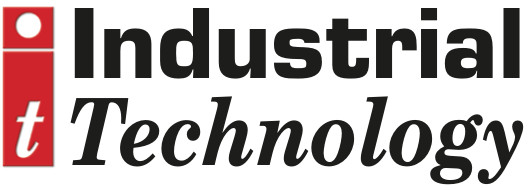
Posted to News on 24th Jan 2024, 15:00
Cutting costs and carbon footprints with polymeric technology
For over 72 years, Belzona polymeric technology has helped numerous asset owners across a myriad of industries to not only make seismic financial savings, but this technology has also enabled them to considerably mitigate their carbon footprints as well.

At the COP28 Summit, negotiators from nearly 200 Parties came together in Dubai with a decision on the world's first Global Stocktake. The Stocktake recognises the science that indicates global greenhouse gas emissions need to be cut by 43% by 2030 compared to 2019 levels, in order to limit global warming to 1.5C.
However, the Stocktake notes that Parties are off track when it comes to meeting their Paris Agreement goals. As such, the Stocktake has called on Parties to take actions towards achieving, on a global scale, a tripling of renewable energy capacity and doubling energy efficiency improvements by 2030.'
Amongst the ever-growing arsenal of carbon mitigation technologies and initiatives, industrial coatings and repair composites can help numerous industries to significantly reduce their carbon footprints, in line with Paris Agreement targets.
With a comprehensive range of polymeric systems such as epoxy repair composites, high-temperature coatings, liquid waterproof membranes, flexible roof coatings and pipe wraps, amongst others, these systems have been proven to not only repair and protect damaged assets across many different industries, but to also intrinsically improve them for the long term as well.
The environmental implications of this circular economic business model are astronomical. By bypassing the need to replace damaged assets and instead actively improving them, industries can make great strides in minimising their environmental impact.
In addition, by investing in these systems, this mitigates the fees that can accumulate in the process of asset replacement. These fees include: the cost of the asset being replaced, the labour required during the removal, disposal and installation process and also the downtime that can be incurred during this procedure.
For these reasons, an increase in investment into these technologies would help many different industries in the process of ratchetting up their 2030 emissions reduction plans, in line with the net-zero emissions by 2050 scenario, in a way that is also financially advantageous.
Conventional protective coatings won't survive
At the core of Belzona technology is polymer chemistry. In the company's laboratories located in Harrogate, UK and Miami, US, the Belzona designs, formulates and manufactures a comprehensive range of polymeric solutions. These systems enable the company's industrial customers to repair and protect assets that would otherwise be damaged by aggressive service conditions.
For example, slurries and strong chemicals cause abrasion and corrosion as they pass down pipes and through production equipment. Factors such as these as well as elevated temperatures mean that conventional protective coatings won't survive. As such, companies must turn to a high-performance polymer technology to protect their assets to an appropriate standard.
Polymeric solutions for a sustainable future
Repairing damaged assets instead of replacing them has always been fundamental to Belzona's philosophy. This is encapsulated in the Company's strapline Polymeric Solutions for a Sustainable Future'. Originally, though, that philosophy was primarily driven by cost: it's considerably cheaper to repair an asset than to buy a new one, so the asset owner can make significant financial savings.
For example, over the course of several years, a steel fabricator in the UK's East Coast managed to save millions of pounds by deploying polymeric repair and protection systems onto more than 2,000 metres of its gas pipeline. This included epoxy repair mortars and stainless-steel protective coatings.
To this day, this philosophy of repair instead of replace remains. However, the need for industries to reduce their environmental impacts is more pressing now than ever before. As such, Belzona polymeric repair materials and protective coatings have an important part to play in supporting this net-zero journey. They can help to reduce the carbon footprint across many different industries such as (amongst others):
Belzona has a wide range of epoxy-based metal repair composites and high temperature coatings and linings which have been used in the petrochemical and oil and gas industries since the late 1970s. These materials are specifically designed to provide outstanding erosion and corrosion protection, as well as chemical resistance for equipment operating offshore and onshore at various pressures and temperatures.
Belzona systems can be applied in the following areas within the petrochemical and oil and gas industries (amongst others): internal and external of process vessels, pipework, cold bonding, splash zones, storage tanks and secondary containment areas, carbon capture, decommissioning, fenders and hoses, heat exchangers, seawater filters and separator vessels.
Not only can Belzona technology help to mitigate the carbon footprint across multiple industries, but these polymeric systems can also safeguard valuable assets within the renewables sector.
Sustainable solutions
The focus on sustainability and conservation of the planet's resources is informing much of Belzona's future endeavours. For example, the company has been supporting a UK-based Power Distribution Company and its customers whose assets are subject to SF6 leaks in their transformers. SF6 is described as the world's worst greenhouse gas and is 23,500 times more potent than CO2.
In early 2022, Belzona created a tailor-made solution to stop leaks on a transformer owned by an electrical distribution operator. After several stages of prequalification, a trial repair was completed and has now been in service for several months. With Belzona's support, the organisation is now achieving a 90-95% leak reduction rate, with an ambition to reach 100% in the near future.
The SF6 project reflects an increasingly important mission being adopted by Belzona: creating products that solve industrial problems in a safe and sustainable way.
Another important part of Belzona's sustainability drive is its investigation into the efficacy of bio-based polymer solutions. One of the negative aspects of working with polymers is that the chemical building blocks used throughout the performance coatings sector are derived from oil - this means that an environmental impact is incurred.
However, Belzona has set out to address this challenge through its exploration and development of high-performance polymer solutions that use feed stocks derived from a renewable carbon source: plants. While bio-based chemicals have been available for low-performance solutions such as decorative paints for some time, the use of these types of chemicals has not previously been possible in the heavy industry market.
However, it is increasingly becoming apparent that chemical manufacturers are recognising the need for plant-derived polymers, in order to meet sustainability targets.
It is now possible to achieve very similar performance to oil-derived equivalents. Belzona is passionate about this ongoing change within the chemical industry. As a down-stream producer, the Company intends to work closely with manufacturers to encourage the adoption of more renewable-carbon solutions that don't compromise on performance or quality.
Polymeric systems
An increase in investment into industrial protective coatings and repair composites would help countries in the process of ratchetting up their 2030 emissions reduction plans, in order to achieve the net-zero emissions by 2050 target. Not only this, as discussed, these technologies are also instrumental in helping asset-owners across many different industries to make significant financial savings as well.
Indeed, Belzona recognises the critical role polymeric systems play in helping to support a more sustainable future for the planet in a way that is also financially advantageous. As such, they are committed to making ongoing investments into the development of polymeric systems that meet the ever-growing and changing demands of industries as they evolve towards a net-zero future.






